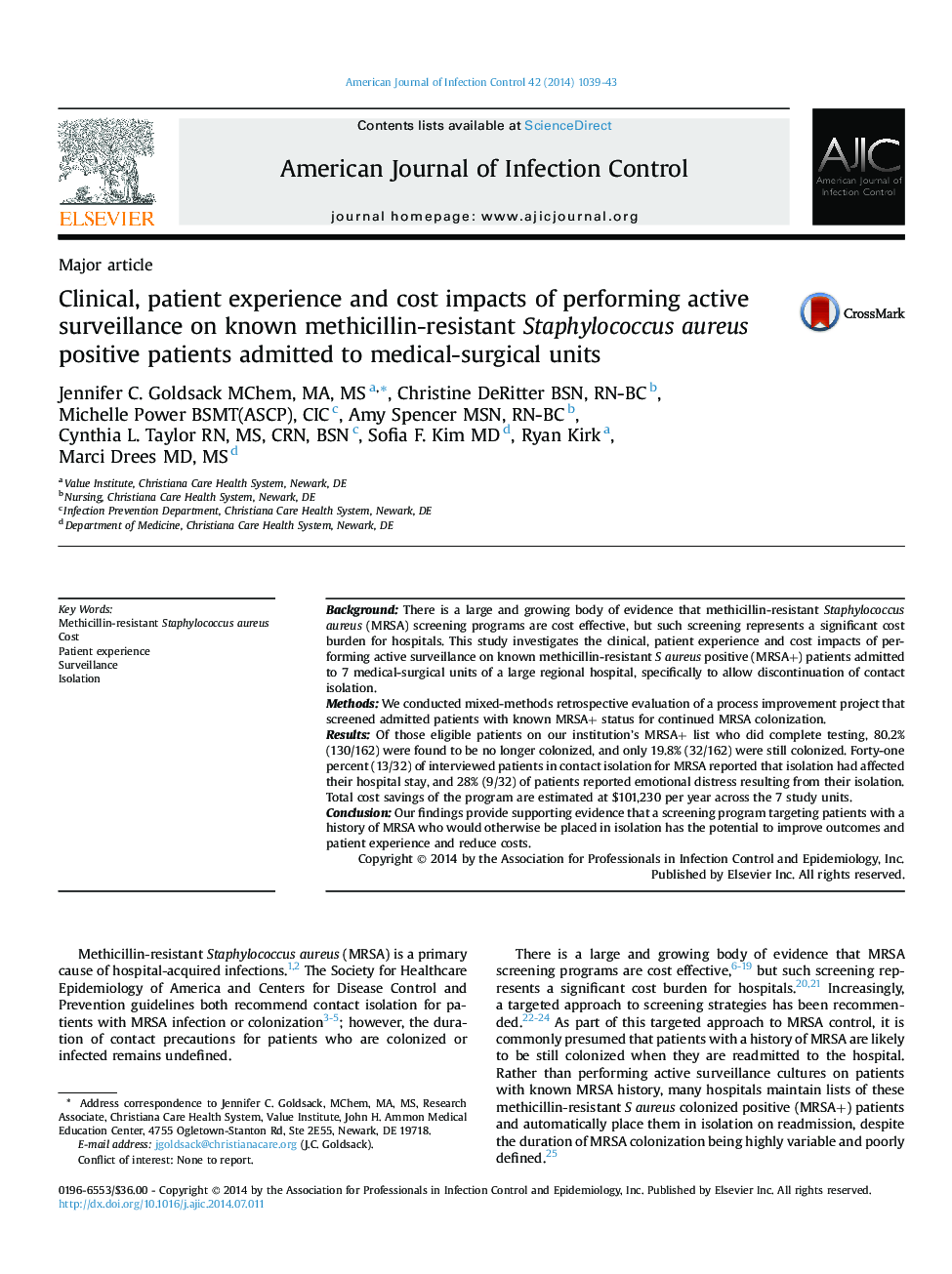| Article ID | Journal | Published Year | Pages | File Type |
|---|---|---|---|---|
| 2636890 | American Journal of Infection Control | 2014 | 5 Pages |
BackgroundThere is a large and growing body of evidence that methicillin-resistant Staphylococcus aureus (MRSA) screening programs are cost effective, but such screening represents a significant cost burden for hospitals. This study investigates the clinical, patient experience and cost impacts of performing active surveillance on known methicillin-resistant S aureus positive (MRSA+) patients admitted to 7 medical-surgical units of a large regional hospital, specifically to allow discontinuation of contact isolation.MethodsWe conducted mixed-methods retrospective evaluation of a process improvement project that screened admitted patients with known MRSA+ status for continued MRSA colonization.ResultsOf those eligible patients on our institution's MRSA+ list who did complete testing, 80.2% (130/162) were found to be no longer colonized, and only 19.8% (32/162) were still colonized. Forty-one percent (13/32) of interviewed patients in contact isolation for MRSA reported that isolation had affected their hospital stay, and 28% (9/32) of patients reported emotional distress resulting from their isolation. Total cost savings of the program are estimated at $101,230 per year across the 7 study units.ConclusionOur findings provide supporting evidence that a screening program targeting patients with a history of MRSA who would otherwise be placed in isolation has the potential to improve outcomes and patient experience and reduce costs.
